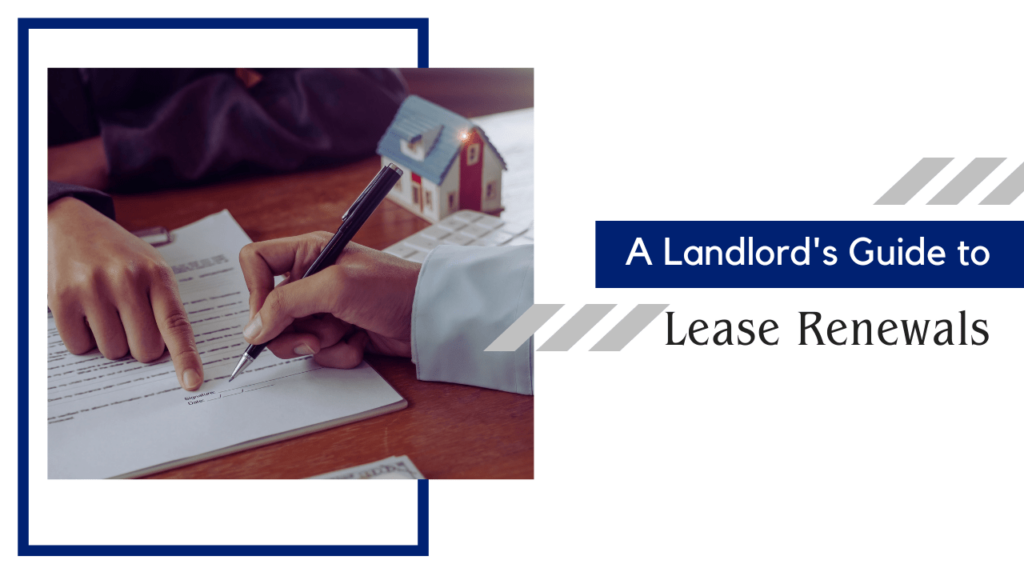
If you’re like most Cleveland rental property owners, you have a lease agreement in place that lasts for a term of 12 months. This is standard, and the rental terms are pretty straightforward.
What do you do when that lease term is coming to an end?
You’ll have to decide if you’re going to offer a lease renewal, and you’ll also have to check with your tenants to see if they’re planning to renew the lease or if they’ll be moving on.
As your property managers in Cleveland, when our tenants are approaching the end of their lease, we’ll talk with you about your plans for the property and whether you intend to renew. Then, we’ll move forward based on what you decide and what your tenants decide.
The renewal process will require an updated lease and usually a new rental amount.
Typically, it’s as easy as signing the lease renewal or accepting the tenant’s notice to vacate. Sometimes, however, things can be unpredictable. So, instead of waiting until the last minute, we plan ahead and give ourselves a lead time of at least two or three months. You don’t want the lease renewal or the negotiation of a new lease to be frustrating, delayed, or contentious.
Staying one step ahead of the lease expiration date is going to help you have a smoother process, and maintaining communication with tenants is also necessary, whether they’re staying for another year or moving out.
Let’s talk about the lease renewal process, what it involves, and how to manage some of the most complex parts of the lease renewal process, including rental increases.
Check Your Lease Agreement and Give Yourself Time
The current lease agreement will tell you how the renewal process starts. Your lease may have the tenancy switch immediately to a month-to-month rental agreement when it expires. Or, it may require a renewal or for the tenants to vacate.
Your existing lease should indicate how much notice a tenant needs to give before vacating or renewing the lease.
We recommend at least a 60-day requirement. This means that if a tenant plans to move out, he or she needs to notify you in writing 60 days ahead of the end of the lease. If you do not hear from them within those 60 days before the lease ends, you can reasonably expect that they’re interested in renewing the lease with you.
More and more Cleveland rental properties are in an HOA or community association. If you’re renting out a home that is in an association, you’ll need to find out if there is any additional renewal paperwork that’s required by the association.
If you’re working with a Cleveland property manager, most of these steps will be taken care of for you. But if you’re an independent landlord, make sure you have a solid timeline in place so you’re not rushing to get a new lease signed days before the existing lease expires.
Making Lease Renewal Decisions
How do you decide whether you want to offer a lease renewal? How do you think your tenants will decide whether they want to stay in place or leave?
Retaining tenants is good for your bottom line. You’ll save money on vacancy and turnover costs. But, some tenants are difficult and you may want to end the relationship rather than extend it. Here’s what you should be thinking about before you offer a lease renewal:
- Whether the tenant has paid rent on time over the last year.
- If the tenant has maintained the property and promptly reported maintenance needs.
- Whether the tenant is easy to communicate with.
- What you’re planning to do with the property over the next year and long-term.
While making a lease renewal decision, your Cleveland tenants will likely consider:
- Whether they have had a positive rental experience over the last year.
- Whether the rental value matches the Cleveland rental market.
- If maintenance and repair needs were responded to promptly.
- Whether the landlord and/or property manager was responsive and transparent.
Once you and your tenants are on the same page in terms of renewing the lease, move ahead to create the lease renewal or we prepare for a smooth move-out process.
If there won’t be a lease renewal, you’ll want to begin making turnover preparations. Let the tenants know what they’ll need to do before moving out if they expect to get a full refund of their security deposit.
Communicating with Cleveland Tenants about the Renewal
Contact your tenants ahead of the notice period that’s in your lease agreement. This initial contact regarding lease renewal should occur at least 60 days in advance of the lease agreement’s end date. That’s when they’ll have to give you notice if they plan to move, so perhaps you should schedule your contact for 75 to 90 days before the end of the lease.
Send a letter or an email about the approaching lease date. Then, provide them with their options. Those options will depend on what you’re willing to do. You can ask them to:
- They can sign a new 12-month lease to continue renting the property.
- They can go month to month instead of signing a lease agreement (if this is an accommodation you’re willing to make).
- They can move out and provide notice of their intent to vacate.
You’ll need to let them know what benefits and consequences come with each option. For example, signing a new one-year lease agreement will result in a better renewal rate. If they’d prefer to go month to month or to stay in the property for an extra three months or six months only, you might be willing to consider that. However, you’re within your rights to ask a higher rental price in exchange for that flexibility.
Moving out comes with its own pricing risks because tenants will general find that rental values have increased over the course of the year that they’ve been renting with us, and it may cost more to find a new rental home in Cleveland. This is why the rental rates you offer must be strategic.
Encourage your tenants to get in touch with you as soon as possible when they’re ready to provide their decision. The more advance notice you have, the better you’ll be able to negotiate the rent and the terms of the lease renewal with your residents.
Some renters will simply sign off on the lease renewal without comment. Others will immediately let you know that they are planning to move out.
A small handful of tenants will often want to talk about the renewal options. They may want to negotiate. We recommend that you keep the lines of communication open. Perhaps they don’t want to renew unless their carpets are cleaned or an appliance is replaced, for example. Be willing to hear their requests and consider negotiating.
Long Term Lease Renewals versus Month-to-Month Agreements
Most initial lease agreements are for a fixed term, usually 12 months, but sometimes 6 months or 18 months. What if the tenant wants to stay in place, but they don’t want to commit to another full year?
You might encounter a tenant who would prefer to continue leasing their home, but on a month to month basis instead of for a full year. This allows for greater flexibility, and it’s especially valuable for tenants who know they will only be living in the property for a short period of time. Perhaps they have plans to relocate in the next few months or their goal is to buy a home before the end of the next year.
This type of situation is not ideal for owners because it brings a bit of uncertainty to the investment experience and what you earn. You won’t know when the home will be vacant again, and it can feel rushed when that tenant does provide notice and you suddenly need to find a new tenant. If the tenant vacates during a particularly slow period in the Cleveland rental market, it can be even more difficult to get the property rented quickly at a good price.
But, you may be willing to consider it. If so, make sure that there’s a written agreement that reflects the terms and the new rent.
How to Raise the Rent When You Renew a Cleveland Lease
 Most tenants expect that rent will go up when the lease renews.
Most tenants expect that rent will go up when the lease renews.
But, keep it reasonable.
Do some research on the Cleveland rental market and make sure you have the necessary data and documentation that supports your decision to raise the rent. Always be open to talking with the tenant about why rent is increasing.
There’s also a consideration for tenant retention when raising the rent. Good tenants are valuable assets, and you want to keep them in place. The best thing you can do is to establish where your rent should be according to the market, and then keep your renewal rate just a bit lower. This will give your tenants the incentive they need to stay where they are and renew their lease.
If you’d like some help managing your own lease renewal process, we’d love to provide it. Please contact us at IIP Management. We work with owners in Cleveland Heights, Lakewood, Lyndhurst, Parma, Solon, and South Euclid (Cuyahoga County).
